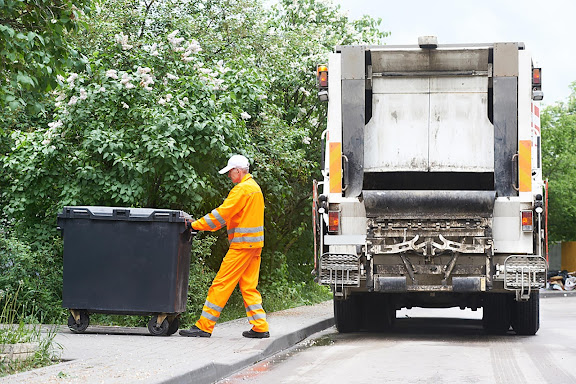7 Common Tips for Effective Hard Waste Collection and Disposal
Effective management of hard waste collection and disposal is crucial for maintaining a clean and sustainable environment. From bulky furniture to electronic appliances, hard waste encompasses various items that require proper handling to minimise environmental impact and promote recycling.
In this blog, we'll explore seven common tips to ensure the efficient collection and disposal of Best Hard Waste Collection Melbourne, contributing to a healthier planet and community.
Schedule Regular Collection Days
Establishing a regular schedule for hard waste collection is key to keeping neighbourhoods clean and organised. Municipalities and waste management companies often provide designated days for collecting bulky items such as furniture, mattresses, and electronic devices.
Residents should be aware of these collection days and plan their disposal accordingly to avoid cluttering streets and public spaces.
Separate Recyclable Materials
Before disposing of hard waste, it's essential to separate recyclable materials from non-recyclables. Items such as metals, plastics, glass, and electronic components can often be recycled or repurposed.
By segregating these materials, you contribute to reducing landfill waste and conserving valuable resources. Many communities offer recycling programs or drop-off centres where residents can conveniently recycle their hard waste.
Ensure Proper Packaging
When disposing of hard waste, particularly items with sharp edges or hazardous materials, it's crucial to package them securely to prevent accidents during collection and transportation. Use sturdy containers, boxes, or wrapping materials to contain broken glass, sharp metal objects, or chemical products. Additionally, hazardous waste should be labelled clearly to alert collectors and ensure safe handling.
Consider Donating or Reusing
Before discarding items as hard waste, consider whether they could be donated or reused by others. Furniture, appliances, and electronics in good condition can often find new homes through charitable organisations, thrift stores, or online platforms.
By extending the lifespan of these items, you reduce waste generation and support communities in need.
Utilise Disposal Services
For hard waste items that cannot be recycled, donated, or reused, it's essential to utilise proper disposal services. Many municipalities offer specialised hard waste collection Melbourne services for hazardous waste, bulky items, and electronic waste.
Take advantage of these services to ensure that hard waste is disposed of responsibly, following regulations and environmental guidelines.
Practice Safe Handling
When dealing with hard waste, prioritise safety by wearing appropriate protective gear such as gloves, goggles, and masks, especially when handling potentially hazardous materials.
Lift heavy objects with care to avoid injury, and be cautious when dismantling electronic devices or appliances. Proper handling not only protects you from harm but also minimises the risk of accidents during collection and disposal.
Educate and Engage the Community
Community involvement plays a vital role in effective hard waste management. Educate residents about the importance of responsible waste disposal practices and encourage participation in recycling initiatives and clean-up efforts.
Organise community events such as waste collection drives or recycling workshops to foster a culture of environmental stewardship and collective action.
Final Thoughts
Effective hard waste collection and disposal are essential for preserving the cleanliness and sustainability of our communities. By following these seven common tips – scheduling regular hard waste collection Melbourne days, separating recyclable materials, ensuring proper packaging, considering donation or reuse, utilising disposal services, practising safe handling, and engaging the community, individuals can play a proactive role in minimising waste generation and promoting a healthier environment for future generations. Together, we can make a difference in creating a cleaner, greener world.




Comments
Post a Comment